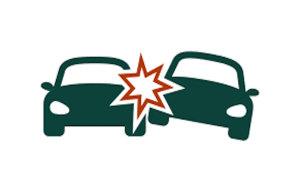Narcan available to Illinois residents
In the past year alone, Columbia and Monroe County EMS have administered the opioid antidote Narcan — which reverses the effects of an overdose — a total of 19 times.
That doesn’t even include Columbia Police Sergeant Josh Bayer’s life-saving efforts in late July when he used Narcan on an overdose victim. Now, a new drug trend threatens to bring in more overdoses and overdose-related deaths.
Monroe County Sheriff Neal Rohlfing warned last Friday that heroin is being laced with the elephant tranquilizer Carfentanil. According to Rohlfing, Carfentanil is about 10,000 times more potent than morphine and 100 times more potent than the pain killer Fentanyl.
“The presence of Carfentanil in illicit U.S. drug markets is cause for concern, as the relative strength of this drug could lead to an increase in overdoses and overdose-related deaths, even among opioid-tolerant users,” he said.
Rohlfing said there have been no confirmed cases of Carfentanil in Monroe County. Since the tranquilizer is so powerful, Narcan may not be enough to reverse its effects. He also indicated he and his deputies do not carry Narcan at this time but the idea is being considered.
In 2015, Illinois passed the Heroin Crisis Act to expand access to Narcan, boosting the number of first responders carrying the drug. Columbia police officers do carry Narcan and are trained in its use.
According to Waterloo Police Chief Jim Trantham, the department sent an officer to a “train the trainer” program as a first step in getting his officers acclimated with Narcan.
In addition, the Heroin Crisis Act allows pharmacies in the state to offer Narcan over the counter. Narcan, also known by its generic name Naloxone, is available in nasal spray form at more than 500 Walgreens pharmacies in the state.
In Monroe County, Walgreens pharmacies are located in Waterloo and Columbia. Customers requesting Narcan need to provide the pharmacist with the same basic information required for prescriptions.
Additionally, pharmacists will encourage those picking up Narcan to seek help if they have an addiction and will warn of the dangers of illicit drugs. The cost of the nasal spray is about $70 without insurance.
Vicki Koerber, vice chairperson of the Monroe County Coalition for Drug-Free Communities, cautions that making Narcan available to users or to the family and friends of users doesn’t help solve the larger problem of addiction.
“I see where you want to get it to family members. However, we have to remember that this is a band-aid to a demonstrative drug and deeper problem,” she said.
Another aspect of the Heroin Crisis Act gives high schools the option to store Narcan and for the school nurse to be trained in administering it. Valmeyer, Columbia and Waterloo high school principals confirmed that their schools have not chosen this option.
Koerber, who is also the Monroe County coroner, explained that even with police and EMS carrying Narcan that there is no substitute for rehabilitation.
“What happens if by the time 911 gets there, it’s too late?” she said.
To help motivate long-term solutions to the county’s substance abuse problem, the drug-free coalition discussed the possibility of creating a documentary at its Sept. 13 executive board meeting. Koerber said the idea for a local documentary came from seeing videos that community activists in Madison County put together.
“The idea is, ‘Yeah, that’s fine, but it’s Madison County, not here,’” said coalition member Kelton Davis, who is also the regional superintendent.
As of now, the coalition did not finalize its talks as to when the documentary would be released or what would be included in the film. The coalition also reformulated its plan for sharing Illinois Youth Survey results with the community.
While the coalition will continue to use its subcommittees to pull important data from the surveys, the group plans to wait until 2017 to present any findings to the county.






